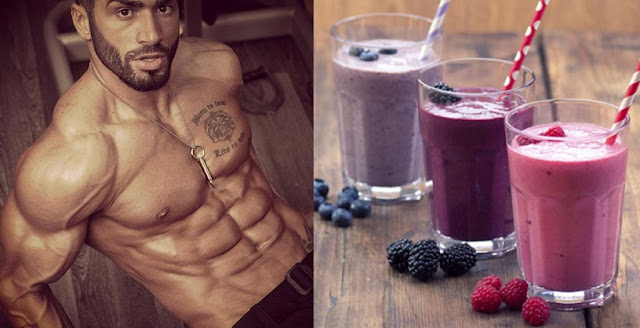Are you looking for energy-boosting vegetables to incorporate into your raw juicing recipes? Your options are considerable, as increasing your consumption of any vegetable juice is likely to help you build and maintain energy throughout the day. However, some vegetables are better than others when it comes to turbo-charging your energy and fighting off sluggishness and fatigue.
All nutrients are vital to energy production, but some are especially important to focus on if you feel like you don't have enough energy to get you through the day. B vitamins (including folate, niacin, thiamin, B6 and of course B12) are critical to energy production. Other than B12, which is only found in animal products, they are plentiful in many fruits and vegetables.
Potassium and magnesium also contribute to energy. Potassium helps in the conversion of blood glucose to glycogen, the storage form of sugar that we use for energy. Magnesium helps the glycogen release its energy when the body requires it.
Iron is critical for energy as well, as anemia can cause fatigue. Magnesium malate / malic acid can be helpful, especially for people with fibromyalgia. Chromium and zinc also help with energy regulation, as well as vitamins C and E.
Some people think that eating or drinking a food or beverage that contains high-glycemic carbohydrates is a good way to gain energy. However, unless you are preparing to run a marathon this is not recommended. These foods give a person a burst of energy but then tend to leave people sluggish, and they can affect your blood glucose and metabolism in negative ways.
Instead, focus on low-glycemic juices, such as those made with leafy greens and berries, and on eating foods that contain complex carbohydrates (such as whole grains and legumes). Complex carbohydrates will allow you to maintain your energy level longer.
Here is a list of twenty of the top vegetables and fruits to juice for energy. Incorporate any of them into your raw juicing recipes to give yourself a serious energy boost.
1. Swiss chard - Potassium, B2 (riboflavin), magnesium, iron, vitamins C, E
2. Spinach - Potassium, folate, magnesium, iron, C, E
3. Fennel - Potassium, C
4. Kale and mustard greens - Potassium, folate, magnesium, B6, iron, C, E
5. Broccoli - Potassium, magnesium, B5, B6, folate, C, E
6. Winter squash - Potassium, B2 (riboflavin), B3 (niacin), B5, B6, folate
7. Eggplant - Potassium
8. Cantaloupe - Potassium, C
9. Tomatoes - Potassium, malic acid, E
10. Apples - Malic acid
11. Pears - Malic acid
12. Bananas - Malic acid, potassium, B6 (must be pureed and then mixed in with juice)
13. Cherries - Malic acid, iron
14. Parsley - Zinc, folate, potassium, E
15. Corn - Zinc, B1 (thiamin), B3 (niacin), B5, B6
16. Peas - Zinc, B1 (thiamin), B2 (riboflavin), B3 (niacin), B6, folate, iron
17. Avocado - B1 (thiamin), vitamin B2 (riboflavin), B3 (niacin), B5, B6, folate, iron (must be pureed and then mixed in with juice)
18. Grapes - B1 (thiamin), B2 (riboflavin), B6, iron
19. Asparagus - B1 (thiamin), B2 (riboflavin), folate, C
20. Brussels Sprouts - Potassium, magnesium, B1 (thiamin), B2 (riboflavin), B5, B6, iron, E
2. Spinach - Potassium, folate, magnesium, iron, C, E
3. Fennel - Potassium, C
4. Kale and mustard greens - Potassium, folate, magnesium, B6, iron, C, E
5. Broccoli - Potassium, magnesium, B5, B6, folate, C, E
6. Winter squash - Potassium, B2 (riboflavin), B3 (niacin), B5, B6, folate
7. Eggplant - Potassium
8. Cantaloupe - Potassium, C
9. Tomatoes - Potassium, malic acid, E
10. Apples - Malic acid
11. Pears - Malic acid
12. Bananas - Malic acid, potassium, B6 (must be pureed and then mixed in with juice)
13. Cherries - Malic acid, iron
14. Parsley - Zinc, folate, potassium, E
15. Corn - Zinc, B1 (thiamin), B3 (niacin), B5, B6
16. Peas - Zinc, B1 (thiamin), B2 (riboflavin), B3 (niacin), B6, folate, iron
17. Avocado - B1 (thiamin), vitamin B2 (riboflavin), B3 (niacin), B5, B6, folate, iron (must be pureed and then mixed in with juice)
18. Grapes - B1 (thiamin), B2 (riboflavin), B6, iron
19. Asparagus - B1 (thiamin), B2 (riboflavin), folate, C
20. Brussels Sprouts - Potassium, magnesium, B1 (thiamin), B2 (riboflavin), B5, B6, iron, E
Raw juicing recipes that incorporate these fruits and vegetables will help replenish your body with the nutrients it needs to produce energy, stay alert and maintain stamina. Don't forget that if your doctor approves you can also blend in other energy-boosting ingredients such as ginkgo, garlic and green tea as well as a liquid B12 supplement.

Postar um comentário